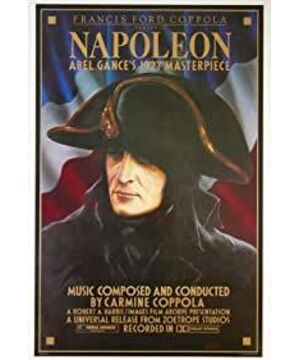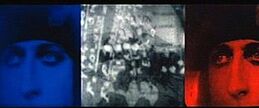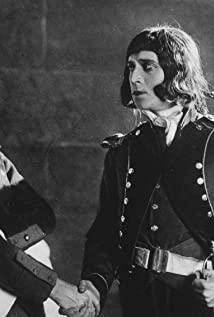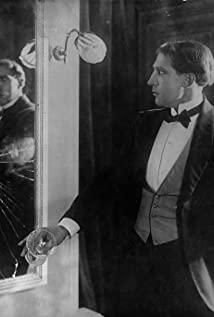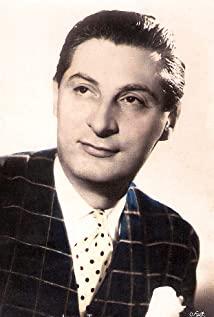Isn't there another person who wants to make some introduction to this great epic, so that more people will pay attention to this unparalleled and magnificent poem?
Isn’t there a man who was excited by this heroic epic and left their footnotes here, and let a woman wearing an apron post botched words and phrases here,
my God, don’t you hear Marseille ’s excitement ?/
I What kind of mediocre age was born, a nation lacking enthusiasm and ideals, and a nation without faith and morality.
Maybe, it's just that I came to the wrong place and wrote the wrong place.
Well, let me write, no matter how out of proportion my words and this great movie, after all, I am moved, I want more people to know this great work of art, just like Abergon What Si said, do my best. He interprets a hero as a poet, so I have to use the frustrating identity of a pupil and a woman to introduce a poet and his works.
Although I longed to see this movie a long time ago, I knew that it was a silent film shot in the 1920s, so I was worried that the film of that era still hadn’t deviated from the stylized style and style of stage performance. Close-ups of slightly weird characters in the blurred black and white image. This is unavoidable. Even in this movie, the common problems of its era can be found, the Chaplin-like dynamic effects, exaggerated expressions, and mechanical editing. But its greatness lies in the praise of the great revolution and the praise of heroes. A few classic shots and scenes are enough to make it go down in history forever, and there will be no one to come.
The film begins with Napoleon’s snowball fight at the Brienne Military Academy and continues until the Battle of Italy. These include Napoleon's activities in Corsica during the French Revolution, the battle of Toulon, the situation of the Portuguese moon, and the acquaintance with Josephine. Among them, I think there are three classic scenes, which will be introduced one by one.
First, the young Napoleon raised a small eagle in the military academy. He loved it very much. When he was going to pour water on it, the small eagle was prankly let go by two classmates. The young man was so angry that he fought with his classmates and was locked up in confinement. The young man fell asleep on a bronze cannon, with snowflakes floating outside. At this time, the little eagle flew back. The young man stroked the little eagle excitedly. He wore the familiar military cap on his head, and his body was covered with a reduction. The coat is exactly that classic image.
This young man is the Corsican eagle that will fly high in the future.
The eagle, a lens with a strong symbolic color, has appeared many times. It symbolizes Napoleon, his ideals, and revolution. The director even overlapped the face of the eagle with the face of Napoleon to prove Napoleon's penetrating eyes and conquering momentum with the striking similarity.
The second scene is that Napoleon was forced to flee because of the spread of revolutionary ideas in his hometown. He drove a small boat to the French coast alone. At this time, the scenes of the French Revolution, the images of Dandong, Robespierre, Saint Just and the turmoil in Paris intertwined. In the stormy sea, a huge red, white and blue flag was the sail. Napoleon drove it alone in the sea, almost submerged in the huge waves. This is a clear metaphor, which indicates that the fate of France and himself will eventually be as thrilling as the sea. At this time, the eagle appeared again, standing at the top of the tricolor flag, guiding the precarious boat.
The eagle finally appeared in the mighty queue to march into Italy at the end. The eagle spreads its wings high with the accompaniment of Marseille. Next to the tricolor flag is the great Napoleon's flag, which is the eagle flag.
The third is the scene I think is the most lyrical and romantic. It is Napoleon alone in the empty parliament, swearing to the souls of revolutionary sages such as Dandong, Mara, and Sanjuste, to inherit revolutionary ideals and be loyal to revolutionary ideas. After spreading the ideas of the Great Revolution to Europe, Napoleon turned into a god of war and jumped up with the tricolor flag flying behind him.
What a great and poetic scene! The most glorious and magnificent picture in history, its perfect shape, deep inspiration, great meaning, and David's masterpiece filled with the tragic and masculine spirit of ancient Rome become a great work that records the immortality and eternity of the great era.
It is worth mentioning that the actor who played Napoleon, whether he was a teenager or a young man, chose very accurately. The young man was stubborn and innocent, the young man was tenacious and full of enthusiasm. The long hair over his shoulders, the thin body, the pale complexion, especially the pair of eagle eyes that conquer everything, all fit the characteristics of Napoleon himself. Especially his profile close-up, faithful to the perfect Roman style of painting, a young Augustus.
After watching this great epic movie, I understood what is true poetry, what is lyricism, and how to express ideals and passions.
I can say without regret that this is the greatest movie I have ever seen, an epic that can never be rewritten, the most beautiful and spectacular movie in the world.
Revolution, youth, honor, young friend!
View more about Napoleon reviews


